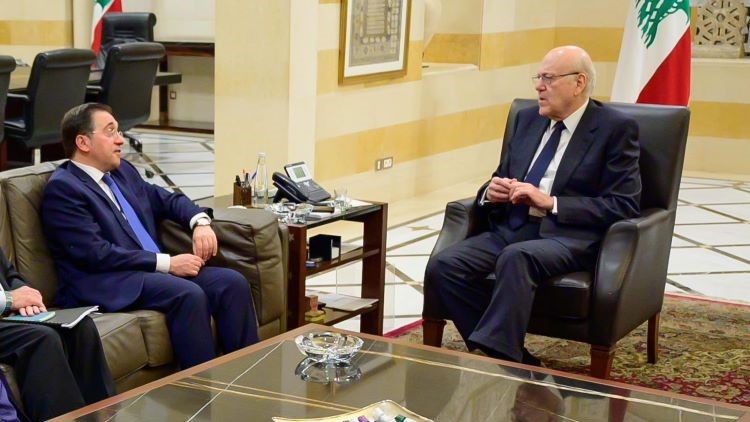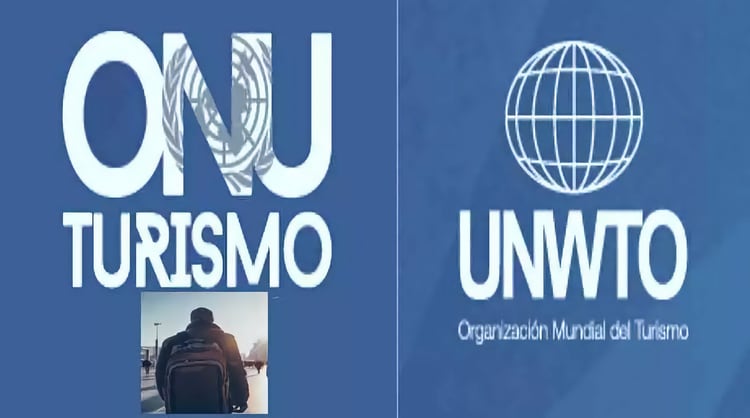Eduardo González
The Minister of Foreign Affairs, José Manuel Albares, began yesterday his regional tour of the Middle East in Lebanon, a “reference country of peaceful coexistence between religions”, to which he has offered Spain’s support to prevent the escalation of violence in the region. . Likewise, he assured that he intends to visit Israel as long as “the agendas” allow him to also visit Ramallah, capital of the Palestinian Authority, something that has not been possible on this occasion.
“Spain works for stability and peace in the Middle East, and we do it together with our partners, friends and allies,” Albares declared during a press conference in Beirut after meeting with the Prime Minister of this country, Najib Mikati.
“We have proposed an urgent convening of an international peace conference and moving from talking about the two-state solution to the materialization of the two-state solution, which requires the recognition of a realistic and viable Palestinian state,” the minister continued. “The international peace conference is a Spanish proposal and, therefore, we will be an active country in the development of the peace plan that the high representative presented yesterday at the end of the Foreign Affairs Council meeting,” he added.
Albares’ tour of the region, which will include Iraq, occurs precisely one day after the EU Foreign Affairs Council, in which the high representative of Foreign Policy, Josep Borrell, presented a peace plan that includes “ a preparatory peace conference to address the Israeli-Palestinian conflict comprehensively in the future.” In addition, the minister held separate meetings on the sidelines of the Council with his Jordanian counterparts, Ayman Safadi; Palestine, Riyad Al-Maliki; and Egypt, Sameh Shoukry.
“Lebanon is, without a doubt, one of the main actors with whom Spain wants to collaborate to put a containment block on the spiral of violence that is being experienced in the region,” Albares continued. “Lebanon, and that is the main message I bring here to Beirut, is one of our partners for peace,” he said. For this reason, he explained, he himself conveyed to Mikati yesterday the “commitment of Spain and its Government to peace, stability and prosperity” in the region and to the UN mission in the country (UNIFIL) and assured him that Spain “will respond to the financial needs of Lebanon and many countries in the region”, which, “at the moment, are greater than ever.”
“Lebanon is a generous country, as demonstrated by its capacity to welcome Palestinian and Syrian refugees,” he said. “Lebanon is a democratic country that can and should be a benchmark for peaceful coexistence between religions” and, therefore, the survival and prosperity of this country “are key to stability in this region,” he declared.
Albares’ tour today will include a visit to the 656 Spanish soldiers of UNIFIL, the largest Spanish military contingent in a UN mission (currently commanded by Spanish General Aroldo Lázaro), to express to them the “recognition of the Government of Spain to the magnificent work they do in a very complex situation and very far from their loved ones,” he explained. Likewise, he will visit several Spanish Cooperation projects and will hold a meeting with Spanish cooperators in this country.
Subsequently, Albares will travel to Iraq, where he will visit the Unión III Base to meet with the Spanish military authorities and receive updated information on the mission that Spain carries out in this country, both within the framework of the Global Coalition against Daesh and in the field of the NATO Mission in Iraq for training and training members of the Ministries of Defense and Interior. Likewise, he will hold meetings with the authorities of that country, among others, with his Iraqi counterpart, Fuad Hussein; with the president, Abdul Latif Rachid; and with the prime minister, Mohamed Shia Al Soudani.
Visits to Israel and Palestine
Regarding the reason why his tour of the region includes Lebanon and Iraq, instead of Israel and Palestine, Albares explained that he had chosen these two countries because of their regional importance and the presence of Spanish forces in both.
However, he assured that his wish was to visit Israel and Palestine “at the same time”, something that has not been possible on this occasion due to the participation of the Palestinian Foreign Minister, Riyad Al-Maliki, in the Security Council meeting. of the UN dedicated to the Gaza conflict. “It was not available,” he indicated. “I have no problem visiting Israel, and I will without a doubt as soon as the agendas agree,” he said.
“I want to remember that I am the first (Spanish) Minister of Foreign Affairs who has received, in thirteen years, a Minister of Foreign Affairs from Israel,” he continued. “Israel is a friendly country and the people of Israel are a friendly people, I have no problem traveling to Israel,” he said. “This is my first tour to the Middle East, but I will come frequently to different countries,” he announced.







